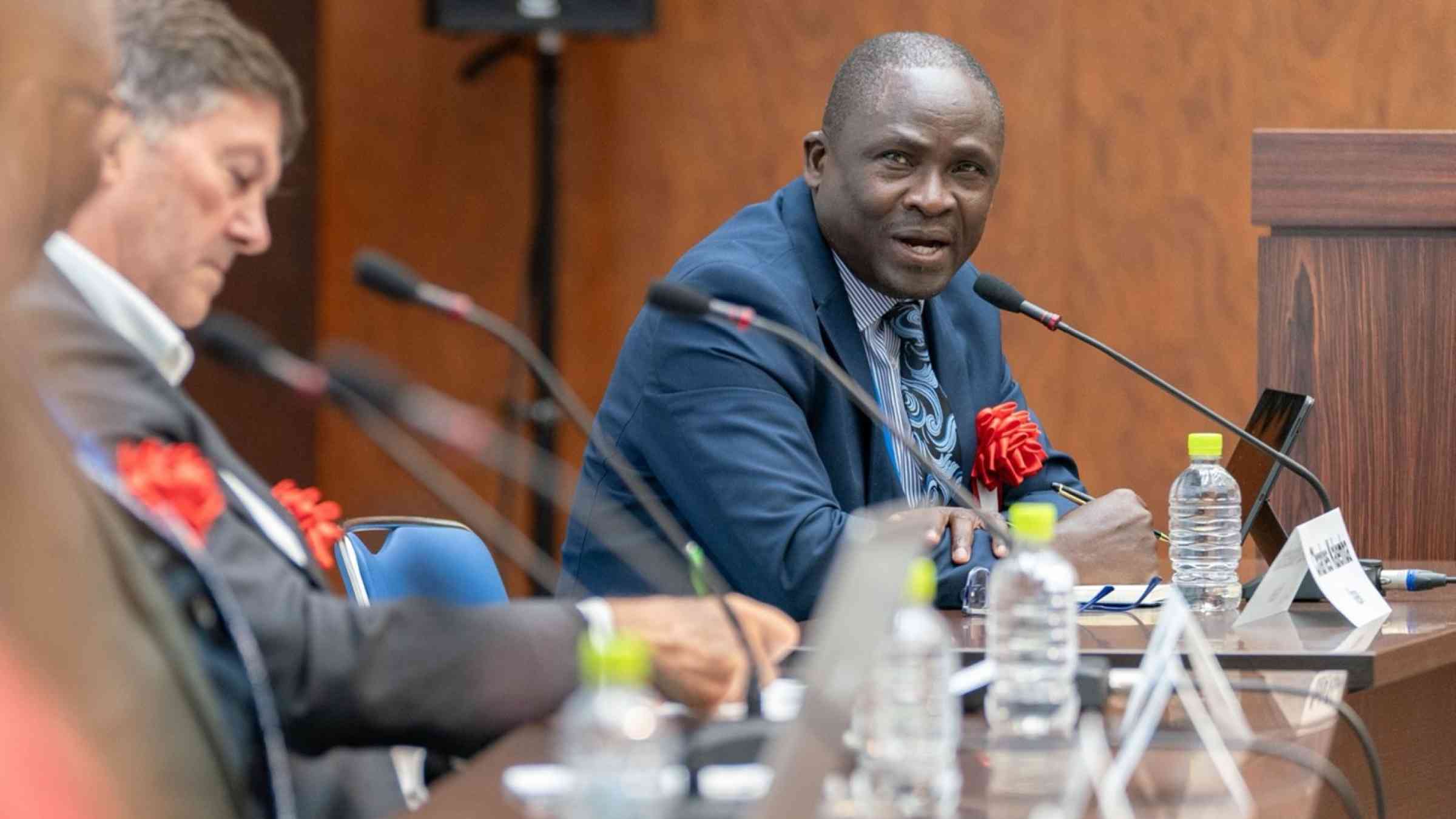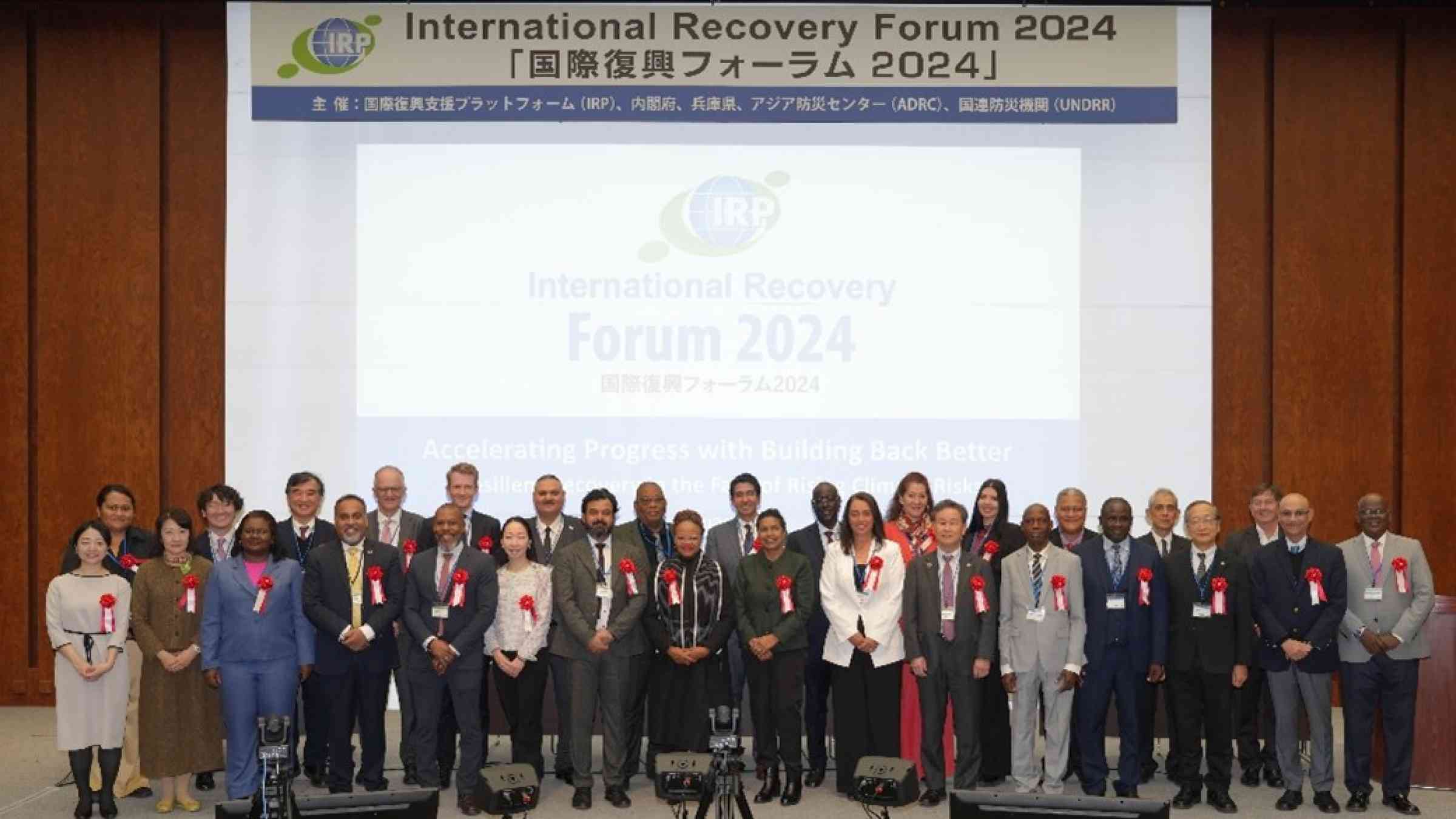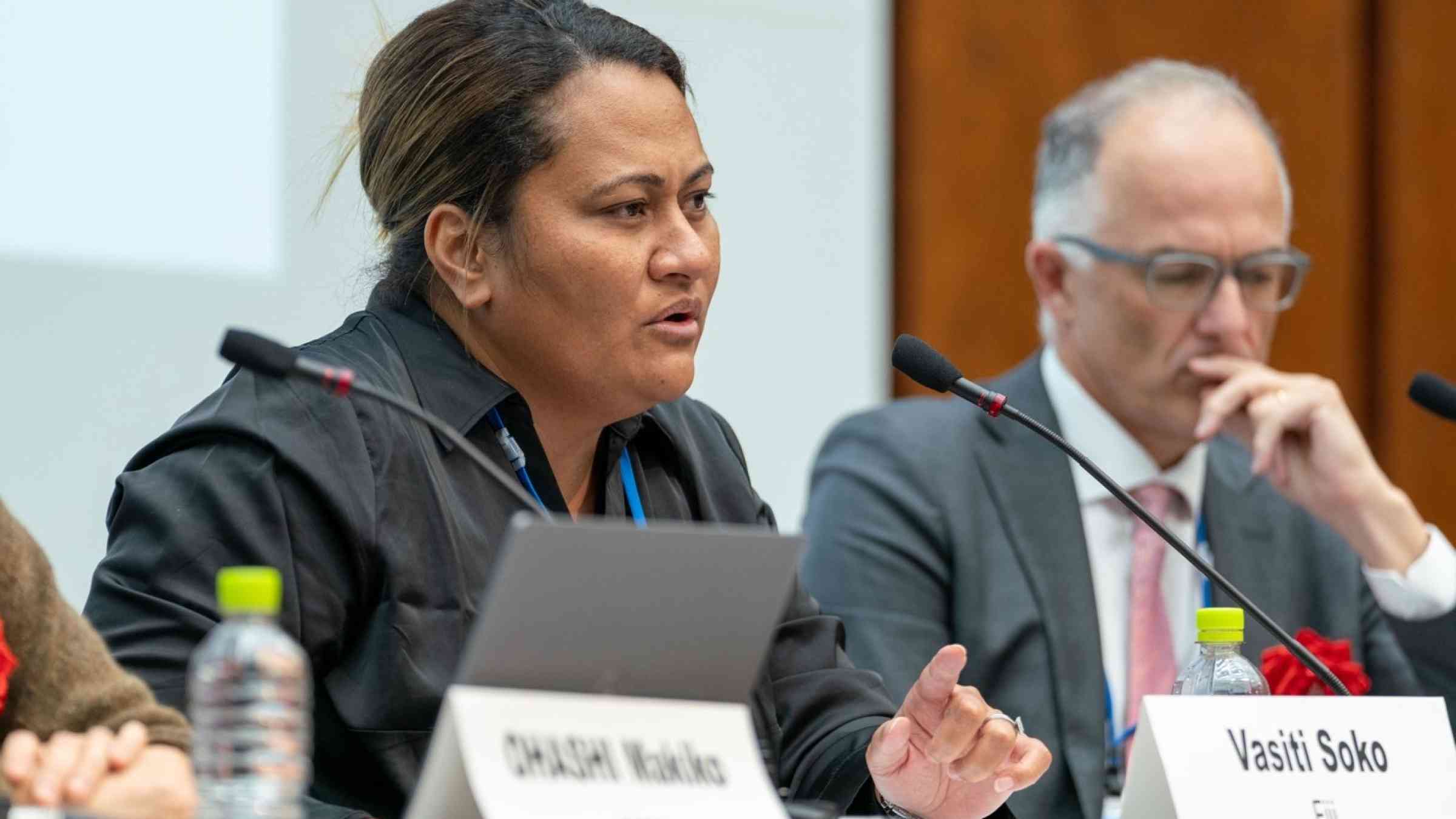Navigating challenges of rising climate risks: Countries push to accelerate progress with recovery and building back better

The International Recovery Forum 2024 concluded successfully in Kobe, Japan, on 25 January 2024, marking a big step forward in global efforts towards resilient recovery from disasters. Hosted by the International Recovery Platform (IRP), this year's Forum, themed "Accelerating Progress with Building Back Better: Resilient Recovery in the Face of Rising Climate Risks," brought together nearly 350 participants on-site and online from 70 countries, including national and local government officials, disaster risk reduction practitioners, and experts to foster dialogue on practical, scalable solutions to the challenges countries have faced with post-disaster recovery and building back better.
The IRP is a global partnership working to strengthen building back better in recovery, rehabilitation, and reconstruction. Its International Recovery Forum (IRP Forum) has been held every year since 2005, as the only annual international conference focused on disaster recovery. The IRP Forum is organized around tackling key prevailing priorities and gaps in knowledge and practice for recovery and building back better.

Delegates in the 2024 IRP Forum shared the many challenges they have experienced with building back better from recent disasters, emphasizing the gap between the aspiration to build back better and the reality of the hurdles they face. They pointed to the challenges they face with coordinating recovery across ministries, particularly with sectors that are used to operating in their own silos. They also emphasized the challenges they have experienced with inclusive recovery. In the rush to recover, countries struggle with ensuring that impacted communities’ needs and goals are heard, and that they are engaged in their own recovery planning and process.
Speakers highlighted the dearth of recovery financing as a critical limitation to long term recovery efforts. Adequate resources are rarely in place when they are most needed. “Recovery costs are greater than the developmental needs of the country. You will not have the resources to recover or build back better,” said Mr. Charles Kalemba, Commissioner, Department of Disaster Management Affairs, Malawi.
Amidst the many challenges highlighted by the Forum delegates, the discussions transitioned into identifying key needs and priorities moving forward, focusing on actionable steps to bolster disaster recovery efforts globally. Delegates emphasized the critical need for capacity building and sharing of knowledge and good practices. Several sessions focused on the ways countries can be supported to prepare for recovery and building back better. Delegates emphasized the need to empower countries and communities pre-disaster with the knowledge, capacities, and strategies necessary to build back stronger, faster and more inclusively. Speakers underlined the need for recovery plans to align recovery efforts with long-term objectives for sustainable development and resilience against future events.

The commitment to inclusive recovery planning emerged as another key theme, stressing the importance of ensuring that recovery programs are not only tailored to the specific needs and goals of impacted communities but also actively involve these communities in the planning process. This approach champions the principle that resilience can only be truly achieved when recovery strategies are co-created with those most affected by disasters, thereby ensuring that no one is left behind in the journey towards a resilient future. “One of the things we often overlooked was the expectations from the community. There's instances where communities refuse a recovery program or project because they were not involved in the decision making,” observed Vasiti Soko, Director National Disaster Management Office, Fiji.
As we move forward from the IRP Forum 2024, the pathways toward accelerating progress with post disaster recovery have greater clarity. The Forum concluded with a call from delegates for greater support to strengthen recovery capacities, policies and practices, and to ensure these capabilities and measures are in place pre-disaster so that they are ready when needed. Improving pre-disaster recovery preparedness will require capacity building, sharing of knowledge and good practices, engagement and empowerment of communities and vulnerable populations.
- For more information on the IRP Forum 2024, please visit the IRP website.
- To access recordings of the conference sessions, please visit the IRP YouTube channel.
